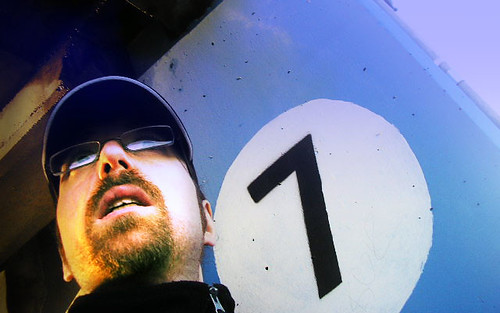Who is Anders F. Rönnblom? When I was a young dude one of my best friends had an obscure worn tape recording with some strange rocksinger/-poet singing in a sensitive way with a clear sarcastical and ironical undertone. I instantly liked this music, the voice and lyrics. I listened to the tape repeatedly on and on again at my friends mono tape recorder in his summer house.
The citation above is from one of Anders F’s tunes from 1977. The book 48 tunes (48 låtar) is a personal collection of the best songs by the composer with lyrics, scores, comments and harmonical analysis. The excellent portrait photos reproduced is taken by Mariann Eklund, Studio Matchbox.
Photo above: linked in from www.boogieproduction.se
Litterature Anders F. Rönnblom (1983) 48 låtar Stockholm: Air Scandinavia (128 p.)
Visit Anders F’s myspace web site where the song above is uploaded · Anders F live video from the music steamboat S/S Blidösund


